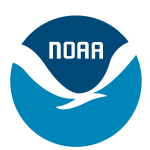- Industria: Government
- Number of terms: 30456
- Number of blossaries: 0
- Company Profile:
NOAA Coral Reef Conservation Program, National Oceanic and Atmospheric Administration, U.S. Department of Commerce
La larva planctónica ciliada de muchos invertebrados, incluyendo gusanos poliquetos, moluscos y rotíferos.
Industry:Natural environment
Una cavidad del cuerpo; una cámara del corazón que recibe sangre.
Industry:Natural environment
Un pigmento que absorbe la luz en una longitud de onda y emite en una longitud de onda diferente. La luz emitida generalmente tiene una energía más baja que la luz absorbida por el pigmento.
Industry:Natural environment
A soft coral in the order Pennatulacea and subclass Alcyonaria. Sea pens are colonial octocorals which exhibits polyp dimorphism. One polyp grows very large, loses its tentacles and forms a central axis. The base of this primary polyp forms a bulb which may be expanded or contracted. The bulb is used to anchor the colony. Branching off this primary polyp are various secondary polyps. Some, called autozooids, are typical feeding polyps. Others, called siphonozooids, serve as intakes for water, which circulates within the colony and helps keep it upright. Calcareous spicules and frequently a central axial rod of calcium carbonate also provide support. One group of sea pens have secondary polyps grouped into "polyp leaves," giving these species a feather-like appearance, from which we get the common name as they look something like old-fashioned quill pens. Most species, however, do not have polyp leaves, and look more like clubs, umbrellas, or pinwheels.
Industry:Natural environment
Tipo de dentición donde los dientes se reemplazan continuamente.
Industry:Natural environment
Un epitelio consiste en una o más capas de la célula, la más superficial de las cuales está compuesto por células planas, forma o platelike.
Industry:Natural environment
